Supreme Court: The key lines of the judgement
- Published
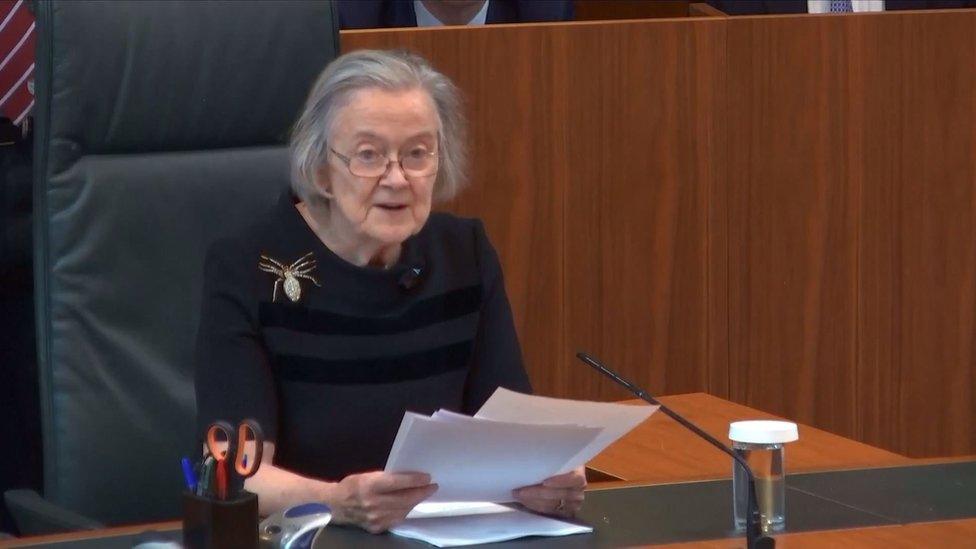
The President of The Supreme Court, Justice Lady Hale, has read out the court's judgement that the decision to prorogue - or suspend - Parliament was unlawful.
Here are some of the key sections of the ruling:
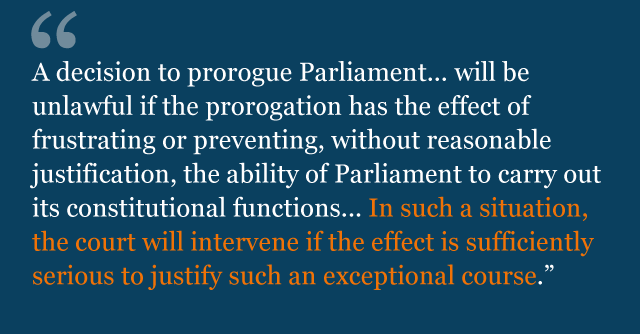
Why does this matter?
The Supreme Court has drawn a clear line in the sand that a prime minister's executive powers in this most important area of how and when Parliament opens and closes are now curtailed - for ever.
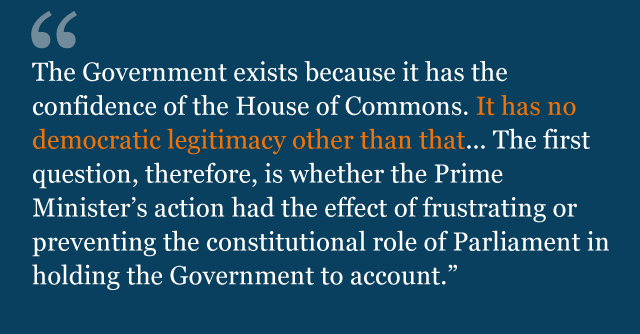
Why does this matter?
The Supreme Court has underlined that the government and prime minister are the "junior" partners in the British constitution - that Parliament is the "senior" partner - and the junior cannot tell the senior, which acts for the people, what to do.
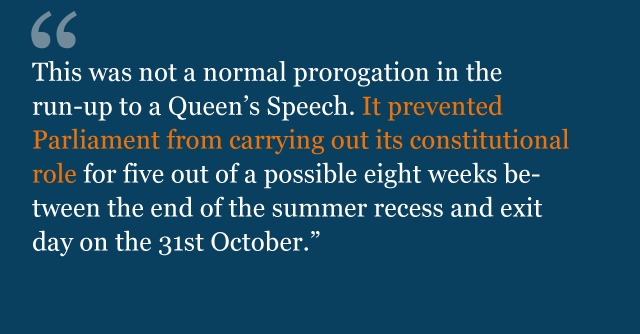
Why does this matter?
The Supreme Court is underlining that if there is an exceptional use of executive powers by the prime minister that infringes on parliamentary democracy, judges have the power to intervene.
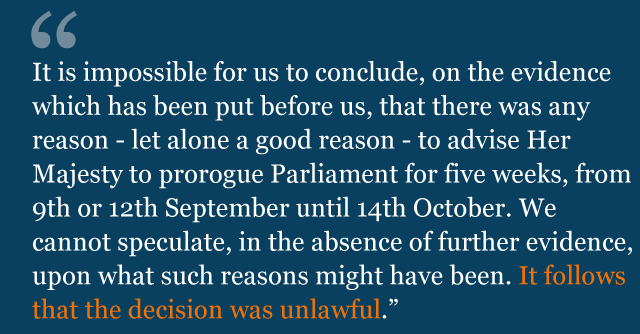
Why does this matter?
This is the most important paragraph.
During the case, the prime minister failed to provide any evidence to the court about his intentions - there was no witness statement.
This contributed to the Scottish Court of Session's inference that he had an improper purpose - and the Supreme Court's scathing conclusion that the highest court in the UK has seen no evidence to explain what he was doing.
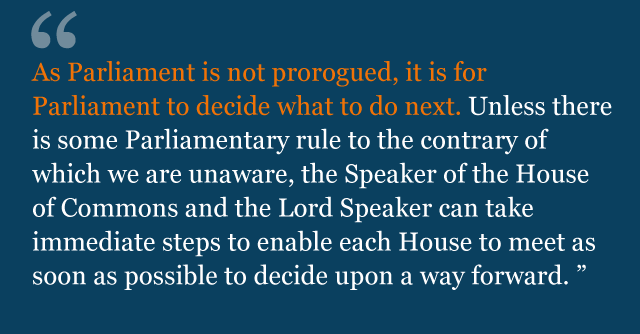
Why does this matter?
In its last submissions last week, government lawyers argued that the prime minister retained the power to decide how and when to recall Parliament - and even to "re-prorogue" it.
The 11 justices have unanimously rejected that plea.
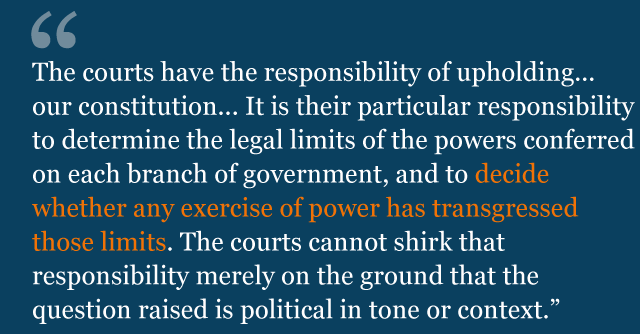
Why does this matter?
The Supreme Court was set up to resolve the most complicated legal and constitutional questions of the day - and in this judgement it has shown it is not afraid to tread into matters that judges in previous eras would have feared to have been too political.
And this is why this judgement is so important for the future of the British constitution.